With more assets and wells coming to the end of their economic life, decommissioning is a pertinent topic of discussion across the globe, particularly in the North Sea. This type of project can be extremely challenging, costly, and time consuming, however new technology is continually emerging to help operators unlock efficiencies throughout the decommissioning process.
In this blog post, we discuss the major challenges involved in this type of project, shares the opportunities that have emerged, and introduces new technology that can help to make decommissioning more effective, efficient and safe.

REDUCING THE COST OF DECOMMISSIONING
Decommissioning has become a particular area of focus in the industry due to the significant expense that is involved in this stage of an asset’s lifecycle, with many people looking to reduce these costs in a way that is still safe and effective.
To combat this issue, the industry and UK Government decided that it was in the operators’ and taxpayer’s best interest for the cost of decommissioning to be reduced. A plan was then set out to reduce decommissioning costs by 35% from the 2015 costs.
With a recent drive in technology innovation and business collaboration, the costs have already reduced by 17% in the last 2 years. This shows that the cost reduction strategy is clearly working well already, and has presented a huge opportunity for companies to develop innovative new products that are cost effective, without cutting corners on safety and efficiency.
MAXIMISING ECONOMIC RECOVERY (MER)
It doesn’t make sense to decommission wells that still have plenty of oil reserves, but because decommissioning has historically been such a costly process, operators have been forced to decommission at an earlier stage while sufficient money is available. The result is that oil reserves that could have been accessible have now been lost.
The Oil and Gas Authority (OGA) have therefore published a strategy for Maximising Economic Recovery (MER) - in other words, keeping wells operating for longer to extract as much oil as possible.
With the continually reducing costs associated with decommissioning, operators are able to maximise economic recovery by investing savings in production, before entering the decommissioning phase at a later stage.
In response to these developments, our team has been looking at ways to help operators achieve MER and continue to lower the cost of decommissioning.

OVERCOMING THE VARIABILITY OF ASSETS
The fact that there isn’t a one size fits all approach is another big challenge in decommissioning.
One well might be relatively easy to abandon, whilst another might need a lot of remedial work done before you can set any plugs. Assets can vary from large multi-well platforms, through to small platforms, FPSOs and subsea wells. Additionally, as many of assets have been around for 30 to 40 years, they can deteriorate from their original, as-built design. Information and documentation may not be available, leading to unknowns in project planning and delays during execution. Fundamentally, each asset requires its own specific project to decommission it.
Due to this variability, it is useful to have a range of options and methods for decommissioning activities; a decommissioning “toolbox”. That’s something that we hope to contribute to at Aubin. If we are aware of our clients having a particular problem, we see that as an opportunity for us to come up with a new solution.
In the UK, the legislation around well abandonment is goal setting rather than prescriptive. The main requirement is that you must abandon the well in a way that it’s not going to leak, but it doesn’t specify how exactly you have to do it. On the other hand, other countries, such as the USA, are more prescriptive with their laws around well abandonment and how it must be achieved.
The UK’s goal-setting approach gives us much more flexibility and opportunity to develop and trial new technologies for well abandonment. All methods must of course go through numerous rigorous qualification stages with operators and regulators, but there’s more room for movement in the UK in terms of technology and innovation, which is a great opportunity in decommissioning.
PLANNING AND PREPARATION
Planning and preparation is key for any decommissioning project, and something that the UK industry is also particularly good at. Operators and licensees must submit a Decommissioning Programme to the regulator 2 to 5 years before cessation of production and subsequent decommissioning.
It is a long process and requires significant planning to ensure that the programme is correct and satisfies the regulators, duty holders and stakeholders. Knowing what you’re dealing with, predicting what issues may arise and planning how to deal with these challenges before you meet them is vital for decommissioning an asset safely and cost effectively.
Ideally, our customers bring us on board during these early planning stages, to help them solve issues they have identified, and bring new technology and reliable solutions to the table that will help them conduct decommissioning as efficiently as possible. We have gained significant experience in decommissioning, so our team members can be invaluable when planning a project.

KNOWLEDGE AND UNDERSTANDING OF AVAILABLE TECHNOLOGIES
New technologies for decommissioning are being developed all the time, so having an awareness of what’s available is an important part of the process. Without awareness and engagement, how can we really push for cost reduction and innovative technologies?
We recommend going to plenty of industry events and using the many networking platforms available. SPE and OGUK hold various events throughout the year focussed on decommissioning and well abandonment, and Decom North Sea is an organisation set up by operators and supply chain to allow them discuss challenges they are facing and how we can solve them.
Maintaining a dialogue with your supply chain is very important. You need to engage with them so that they’re aware of the problems and can try to achieve something that will actually make a difference.
Discover how Aubin can help at each stage of a decommissioning project by clicking here.


